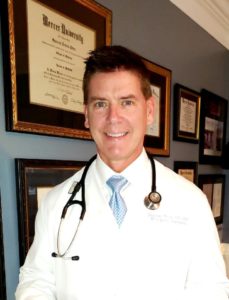Patient Trust Is Key to Driving Recovery in Healthcare
 My name is Spencer Price, MD, MPH, MBA. I have practiced internal and emergency medicine for 20 years and have held numerous medical administrative positions at several Georgia hospitals. I’m board certified in internal medicine, disaster medicine, and administrative medicine through the Member Boards of American Board of Physician Specialties® (ABPS).
My name is Spencer Price, MD, MPH, MBA. I have practiced internal and emergency medicine for 20 years and have held numerous medical administrative positions at several Georgia hospitals. I’m board certified in internal medicine, disaster medicine, and administrative medicine through the Member Boards of American Board of Physician Specialties® (ABPS).
COVID-19 has had an obvious and significant impact on healthcare delivery in the United States in recent months, from a patient, healthcare provider, and healthcare administrator perspective. Fear of being exposed to the virus has caused many patients to avoid seeking needed healthcare resources, including routine care and, in some circumstances, even emergency care. Provider interactions with patients often have also been significantly altered to accommodate personal protective equipment and enhanced infection control measures.
The Need for Reliable Information
When COVID-19 first emerged, the greatest danger faced by patients, healthcare providers, and healthcare administrators was uncertainty. There were many questions and few answers: What was the means of transmission? Who, among the population at large, was most vulnerable? What were the most effective treatment regimens? Since then, however, certain trends have been identified, and a consensus regarding many of these questions has emerged. The challenge now facing healthcare providers and administrators is providing this information to patients in a straightforward, non-technical manner that can be readily absorbed.
Most patients tend to be emotionally prepared for even the most difficult situations as long as they possess a clear understanding of the circumstances they face. With knowledge of a disease process, potential outcomes, and available options, most patients feel empowered to make informed decisions, thus reducing their anxiety.
What Can Healthcare Administrators Do to Help?
The COVID-19 pandemic has proved the greatest medical emergency of the modern era, resulting in hundreds of thousands of deaths and untold suffering. Nevertheless, one possible positive outcome of this tragedy is that Americans may now be more willing to seek proper immunizations against communicable diseases such as COVID and new strains of flu. Healthcare administrators should promote such outcomes and seek to ensure these vaccines are available in sufficient supply to meet public demand. With the public’s heightened sensitivity toward infectious diseases, patients may, from now on, expect the availability of additional protective measures such as convenient handwashing stations and hand sanitizer, respiratory droplet barrier devices such as plexiglass shields, and disposable facemasks.
Regarding communicable diseases, the new paradigm for healthcare administrators is vigilance. Administrators must closely follow information and recommendations issued by the Centers for Disease Control and Prevention, the World Health Organization, and related agencies in order to “stay ahead of the game” regarding emerging infectious diseases.










